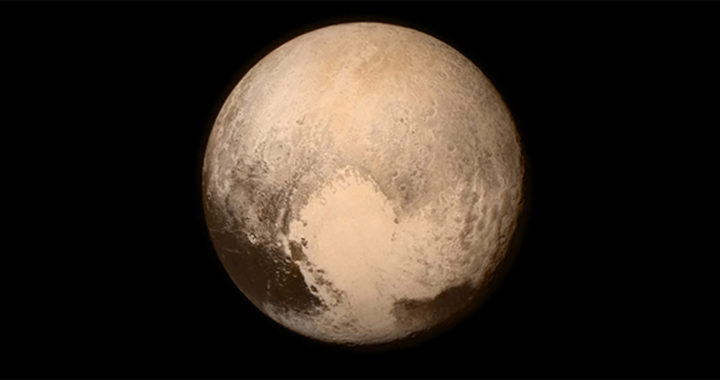Pluto was considered as the ninth planet of the Solar System after astronomer Clyde Tombaugh discovered it in 1930 and the Lowell Observatory confirmed it further during the same year. However, some scientists began questioning the status of Pluto as a planet following the discovery of several similarly-sized astronomical objects in the Kuiper belt in 1992. Nonetheless, in 2006, it was reclassified as a dwarf planet based on a resolution from the International Astronomical Union or IAU.
Why is Pluto not a planet anymore? Why is it considered a dwarf planet? What is a dwarf planet?
Pluto is not a planet because it does not meet the criteria set forth by the IAU. Under the definitions adopted by the IAU resolution in 2006, there are three criteria for classifying an object as a planet. These are: (1) it is in orbit around the Sun; (2) has enough mass for its own gravity to overcome rigid forces so that it achieves a hydrostatic equilibrium shape; (3) and it has cleared its neighborhood around its orbit.
Take note that Pluto only meets the two of the three criteria defined by IAU. To be specific, it orbits around the Sun and has enough mass to assume a hydrostatic equilibrium or nearly rounded shape. However, it has not cleared the neighborhood around its orbit.
An astronomical body is said to have cleared its orbital neighborhood if it has become gravitationally dominant and that there are no other objects with comparable size other than its natural satellites that fall under its gravitational influence. Simply put, Pluto shares its orbital neighborhood with other astronomical objects in the Kuiper belt.
Under the new definitions adopted by IAU, astronomical objects that meet the first and second criteria but failed to meet the third criterion should be classified as dwarf planets. Hence, Pluto has been classified as a dwarf planet alongside Ceres and Eris.
Nonetheless, Pluto and other dwarf planets are astronomical objects that are neither planet nor a moon or natural satellite that orbits around a star and has enough mass to achieve and maintain a round-like shape but has not achieved gravitational dominance to clear its orbit neighborhood of other objects of comparable size.
Why Pluto should still be considered as a planet: Arguments against the IAU reclassification
The definitions adopted by the IAU in 2006, as well as the subsequent reclassification of Pluto as a dwarf planet, have been criticized by some members of the scientific community.
For example, American engineer and planetary scientist Sol Alan Stern, who is also the principal investigator of the New Horizons mission of NASA, argued that Earth, Mars, Jupiter, and Neptune technically do not fall under the IAU definition of a planet because they share their orbits with asteroids. He also argued that massive natural satellites, such as the Moon of the Earth, should be regarded as planets under the IAU definition.
Marc William Buie, an American astronomer who worked for the Lowell Industry, also argued that the IAU resolution failed to address the characteristics of planets outside the Solar System. Essentially, he argued that the IAU definitions lacked generality. Buie believed that the concept of planethood should not depend on where it is or how it got to where it is.
To explain his argument further, Buie challenged the definitions of IAU by positing two questions. First, he asked if it is possible that the Earth was responsible for clearing the neighborhood around its orbit. He said that it is possible that the Sun and Jupiter did more clearing around the orbit of Earth. Second, he also asked how a large object the size of Neptune and situated in the outer reaches of the Solar System should be classified if it did not do any clearing because there was nothing to clear.
Due to the contentions, the Applied Physics Laboratory of the John Hopkins University held a two-day conference in August 2008 called “The Great Planet Debate” that gathered scientists on both sides of the debate. However, a post-conference release mentioned that scientists could not come to a consensus about the definition of a planet.
FURTHER READINGS AND REFERENCES
- International Astronomical Union. (n.d.). “Pluto and the Developing Landscape of Our Solar System.” IAU For the Public. International Astronomical Union. Retrieved online
- Planetary Science Institute. (2008, September 19). “Scientists Debate Planet Definition and Agree to Disagree.” Planetary Science Institute. Retrieved online
- Shiga, D. (2006, August 25). “New Planet Definition Sparks Furore.” New Scientist. Retrieved online

